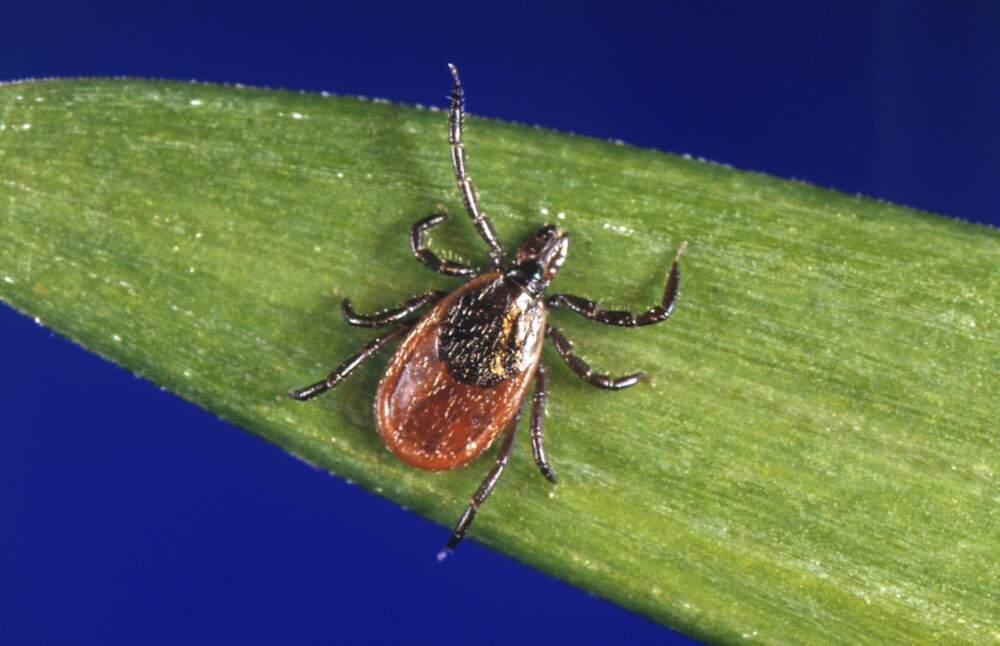Advertisement
Tick-borne Powassan virus reported in Sharon, Mass.

Public health officials in Sharon said they identified a case of rare tick-borne disease: Powassan virus.
The health department in the Norfolk County town south of Boston said it's the first time it's had a confirmed case.
Health experts say most people exposed to the virus never feel ill. But for those who do, symptoms usually begin between one week and one month after a bite from an infected tick. And they include fever, headache, vomiting, weakness, confusion, speech difficulties and seizures. In severe cases, the virus could cause brain and spinal cord inflammation, seizures and possibly death.
"Powassan virus is closely related to West Nile virus and while cases are rare compared to other diseases spread by the same tick, the virus can invade the central nervous system (brain and spinal cord) and cause severe disease," the Massachusetts Department of Public Health said in a statement.
There have been 16 reported cases in Massachusetts in the past decade, according to the state agency. Cases in the United States occur in the Northeast and northern Midwest.
The virus has been around since the early 1960s, said Stephen Rich, a microbiology professor at UMass Amherst and executive director of the New England Center of Excellence in Vector-borne Diseases. He says the number of people who are severely stricken by Powassan is akin to the number of people who get struck by lightning.
"That's something in the neighborhood of 75 to 80 people every year," he said. "Nonetheless, the number of times that lightning strikes the ground every year is something like 40 million. So 40 million lightning strikes result in a very small, but tragic, number of deaths."
Rich added climate change is playing a role in the spread of the disease.
"If you get those real warm spells in January, things warm up above 50 degrees ... ticks come out and they're active and we know that ticks don't die in the winter," Rich said.
People could protect themselves from Powassan, as well as other ailments like Lyme, by avoiding tick bites. The state's Department of Public Health suggests residents use repellent with DEET in wooded or grassy areas. They should also wear long, light-colored pants tucked into socks or boots, and a long-sleeved shirt.
Hikers should stay on trails to avoid places where ticks are likely to be. For folks with pets, DPH said to talk to a veterinarian about tick control options like tick collars and repellants.
After being in wooded areas, experts suggest checking for ticks behind ears, on the hairline, in armpits, and behind knees before heading indoors.

